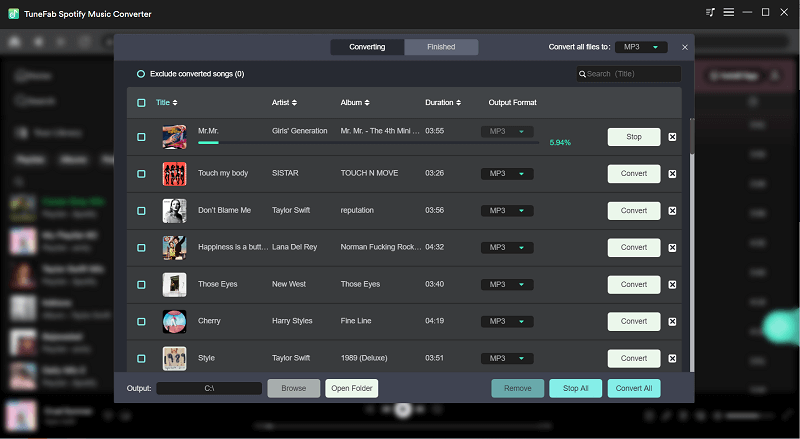Last Updated on: 22nd November 2023, 09:38 am
As businesses streamline their activities and maintain a competitive edge, the automation of vital business processes has gained unparalleled significance. By harnessing the potential of technological prowess, businesses can fine-tune their workflows, diminish the likelihood of human fallibility, and liberate valuable temporal and material assets. In this post, we shall delve into business processes that stand to gain from automation, initiating a paradigm shift in organizational operations and ultimately enhancing business success.
-
Accounting
Efficient financial management is crucial for business success. Finance automation minimizes human error, ensures compliance, and provides real-time insights into financial health. Implementing advanced accounting software like QuickBooks, Xero, or FreshBooks centralizes financial data, automates transactions, and fosters collaboration between departments. Leveraging artificial intelligence (AI) algorithms for predictive analytics enhances cash flow management and optimizes financial decision-making.
-
Customer Relationship Management (CRM)
CRM plays a pivotal role in nurturing customer relationships and fueling growth. Automation streamlines lead generation, customer onboarding, and support ticket management. CRM systems capture and analyze customer interactions, track sales progress, and personalize marketing efforts. Automated follow-ups, email marketing campaigns, and proactive lead engagement improve customer satisfaction, sales conversion rates, and long-term loyalty.
-
Human Resources and Talent Acquisition
Recruiting and managing human resources can be time-consuming. HR automation improves efficiency, candidate sourcing, and employee experiences. Tools like Workday, BambooHR, or Greenhouse streamline hiring, from applicant tracking to interviews and job offers. Automating payroll, benefits administration, and performance evaluations ensures accuracy and compliance, enabling HR professionals to focus on strategic initiatives like employee development, fostering company culture, and enhancing productivity.
-
Inventory and Supply Chain Management
Efficient inventory and supply chain management significantly impact profitability. Automation prevents stockouts, optimizes inventory levels, and improves order fulfillment. Inventory management software automates stock tracking, reorder points, and demand forecasting. Integration with suppliers facilitates seamless communication, automates order placements, and ensures timely delivery. Real-time monitoring and IoT devices minimize overstocking or understocking risks.
-
Marketing and Social Media
Effective marketing drives brand awareness and customer engagement. Automating marketing processes enables consistent, targeted campaigns and comprehensive performance analysis. Email marketing platforms like Mailchimp segment audiences, schedule personalized emails, and analyze engagement. Social media automation tools like Hootsuite or Buffer schedule posts, monitor activities, and promptly respond to inquiries. Automating marketing tasks optimizes digital presence, boosts customer engagement, and generates qualified leads.
-
Data Analysis and Reporting
Data-driven decision-making is essential for business success. Automation saves time, enhances accuracy, and enables timely insights. Business intelligence tools provide automated data visualization and reporting. These tools collect and transform data from various sources, presenting it in visually appealing dashboards. Automating routine data analysis tasks identifies trends, monitors KPIs, and facilitates swift, data-driven decisions.
Automation enables real-time monitoring of key performance indicators, empowering organizations to detect trends, identify patterns, and uncover actionable insights from vast amounts of data. Automated reporting ensures accurate and consistent data delivery, eliminating the risk of human error and enabling stakeholders to access relevant information when they need it.
Automation allows for scalability, enabling businesses to handle large volumes of data without overwhelming resources. Ultimately, automating data analysis and reporting empowers businesses to make data-driven decisions swiftly, gain a competitive advantage, and achieve sustainable growth in the dynamic marketplace.
-
Project Management
Automating project management ensures collaboration, task tracking, and resource allocation. Project management software centralizes project-related information, automates task assignment and progress tracking, and enhances team communication. Customizable project templates save time and ensure consistency across different projects.
With manual project management, there is a higher risk of errors, delays, and miscommunication. Automation provides a centralized platform for project planning, task allocation, and progress tracking, reducing the chances of human error and facilitating efficient project execution.
By automating repetitive and time-consuming tasks, such as scheduling, document management, and reporting, businesses can save valuable time and resources. Automated project management tools also enable better team collaboration by providing real-time updates, task notifications, and document sharing capabilities. This streamlines communication, improves coordination, and enhances overall project efficiency.
-
Customer Support
Exceptional customer support builds long-term relationships. Automation delivers timely and personalized assistance, reducing response times and enhancing satisfaction. Ticketing systems automate support ticket creation, routing, and tracking. Chatbots provide instant responses and escalate complex queries to human support agents when necessary. Automating customer support ensures efficient assistance, customer loyalty, and reduced support costs.
-
Workflow and Document Management
Streamlining workflow and document management drives productivity. Automation simplifies document creation, collaboration, and approval, reducing errors and enhancing efficiency. Document management systems like SharePoint automate storage, version control, and sharing. Workflow automation tools like Zapier, Microsoft Power Automate, or IFTTT automate repetitive tasks across applications, enabling seamless data flow without manual intervention.
Endnote
Automation has become an indispensable element for modern businesses seeking streamlined operations, enhanced productivity, and a competitive edge. By automating critical business processes, organizations optimize efficiency, accuracy, and resource allocation. Embracing automation empowers businesses to focus on innovation, strategic planning, and delivering exceptional customer experiences. In a rapidly evolving business landscape, organizations that effectively leverage automation will thrive and excel.




